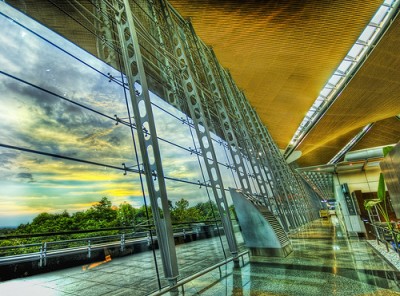
Avyanthi (Avie) Azis writes on the undocumented struggling to make sense of life and love in Kuala Lumpur.
June 2010 was to be my last month in Malaysia. After eleven months of journeying among refugees and the stateless, I knew I was burning out. I felt I needed the company of ‘normal’ people, preferably someone familiar, someone who knew me well. The month was kind to me. An old friend suddenly wrote that he was coming down to visit.
It had been two years since I last saw Eli. We met during first day of school, at a mixer party thrown by the University, and remained close throughout our years as graduate students.. We have something in common, we always trade one capital city with another. Before DC, I had Jakarta, and he Singapore. Now he was Seoul-searching in Korea, while I led misadventures in KL.
Eli’s flight would arrive close to midnight. Scandalous, guests who arrived to visit at this hour. I left home at eight. Somehow I never grew out of my father’s rule: leave home four hours before estimated time of departure/arrival. My father was never unwise, for KL it seemed, had finally caught up with Jakarta and its terrible jam bug.
It was almost nine and the Metrobus was officially frozen in Bandaraya’s traffic. I got off, took the LRT to KL Sentral and boarded the KLIA Express. A quiet journey, uneventful. Clean, smooth, efficient, eco-friendly. There was nothing to look outside of the window. It was pitch black. Just darkness and 28 minutes later, I was at the airport.
I bought an unexotic, overpriced orange muffin at a cafe and proceeded to the Arrival Hall. Dinner had to be postponed to after Eli’s arrival, he hadn’t had roti canai, paratha, tandoori, etc since 2007. Preparing for a long catch-up session, I tried to gather my thoughts and chronicle what I had been doing since I escaped grad school. But instead my mind wandered to a more distant past.
In a previous life, half a world away from KL, Eli and I used to haunt the less serious parts of Washington, D.C. There was a particular night that now came to mind. We were at a cafe called Tryst in Adams Morgan, and a song came on.
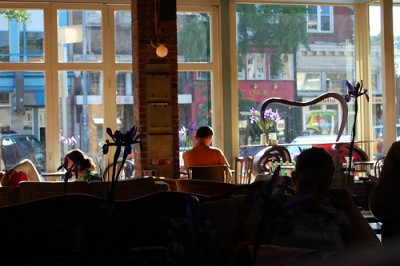
It was very familiar, but I could not remember the title. It nagged me for some reason, there was something about that song, so I waived to the waiter. I am usually too soft-spoken for people to really hear me well, but he understood me perfectly, even with the incessant buzzing of the crowd. He went straight away to check the CD player and came back to tell me, “All I know it’s from OK Computer.” I later recalled the title, Let Down. And here in KLIA, that song came back to haunt me.
Transport, motorways and tramlines
Starting and then stopping, taking off and landing
The emptiest of feelings
But why? Tonight the sight of KLIA jarred on me because it reminded me of stark contrasts in modes of transport and arrivals. Here was Eli, my dear boon companion and a respectable citizen. Coming by plane. The less fortunate did Mother Earth more favor by carrying less carbon-prints. Because they came in terrible little boats. It was this that made me uneasy in KLIA, an epiphany: Our mode of being in this world dictates how we navigate it.
***
Not long after I moved to KL, I came to know a Burman refugee named Zaw. Well, not really a name, it was an alias. I never knew his real name.
Others called him Ko Zaw, I referred to him as the General. After General Than Shwe, the untouchable head of the ruling military government in Burma. Ko Zaw did have this uncanny resemblance to the junta leader. Minus the uniform, of course. And I imagine the real Than Shwe would never wander around in a foreign town, carrying a pink umbrella, like he did.
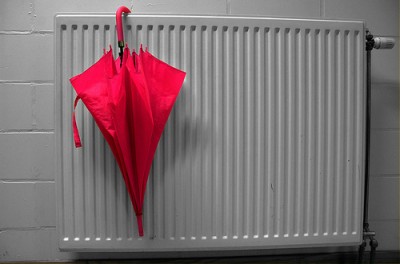
“It’s a gift from a friend. She gave it to me”
The pink-umbrella General came here in 2007. Straight from Rangoon, right after the crackdowns on the failed Saffron Revolution. During the uprising, he worked closely with the comedian/dissident Zarganar, who was later captured and in 2008, sentenced to 59 years of prison. Zarganar was first taken to Insein, and later up north to a remote facility in the Kachin State. Zaw himself was subject to forced labour as punishment for his involvement.
“But they couldn’t find me. So they took my father.”
His father eventually died. He needed not tell about the grim reality of the notorious labour camps. Realizing that Zaw couldn’t stay in the country for much longer, the NLD arranged for his escape.
“I don’t know how much they paid the smugglers. Maybe RM2,000-3,000.”
They spent ten days at the sea.
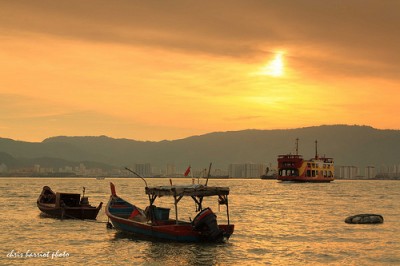
“We arrived in Penang at dawn. The Penangites were still sleeping. We just ran to the beach, before they woke up.”
I have only been to the island once. Beautiful place, seemingly very far from the turmoil in Burma. In its sleep, undisturbed by the all these Burmese sneaking in, what is Penang dreaming of? What can possibly jerk it out of its stupor?
It was from the General that I learnt of something that I refer to as the Malaysian symptom. Too many of my respondents complained of ‘heart condition’ which did not exist prior to their migration.
“The problem started when I got here,” the General said.
He didn’t know what exactly caused it but his heart beat very rapidly now.
“Palpitation? Is that how you call it? Is that the correct word?”
He was trying to improve his English. I’m no native English speaker myself, but it sounded about right. Yes, palpitation. Sophisticated word. I had to look up a dictionary to know how to correctly spell it. (His questions continued in the background: “Do you think this kind of heart condition may lead to cardiac arrest? Like Michael Jackson?” I smiled. Really, the King, he knew no boundaries.)
According to the narratives I collected, the displaced believed that it was the kind of life they led in Malaysia that gave way the condition. “Ini bukan biasa macam hidup.” My respondents describe living in Malaysia as, “curi-curi di rumah orang.” The heart problems are mostly associated with their constantly living in fear, heartache and heartbreak from the bad treatments they have received.
Exile is eating them away, and the first organ to go is the heart, because, as one young man explained, “Hati hakikatnya adalah sesuatu yang lembut.”
Although my papers were perfectly in order, I could easily empathized. It was not hard for me to see how Malaysia instilled a certain fear in the undocumented. I myself did not dare go anywhere without my passport, even when I was only going to the mamak stall across my flat. Friends thought I was being extremely paranoid but Malaysia had bitterly taught me how the IC epitomized the dominant technology of self.
Once I was coming home from Klang after interviewing an elderly respondent. It was quite late, and fearing the KTM commuter would no longer be running, I took the bus back to KL. Nearing the city, the bus was stopped. A big Operasi was going on. I saw people being rounded up.
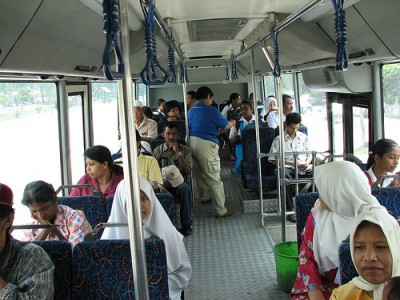
Soon three Imigresen officers boarded the bus, shouting: “All Malaysians were to present their ICs, foreigners their passports!” I did not bring mine. I only brought a photocopy of it. Friends had convinced me it was enough and suggested I kept my passport at home. “Why risk it? What if your bag get stolen? It’s not safe lah.” I cursed my friends. I knew I shouldn’t have listened to them.
Now two officers were surrounding me, yelling. I provided them with the same argument my friends had talked me into: I left my passport at home since I fear it might get stolen. I tried to keep calm but they thought I was trying to be funny. They called another one, a more senior officer, and they all continued yelling at me.
What saved me that night was my research pass. Issued by the PM’s Office Economic Planning Unit. They squirmed, all the arrogance suddenly dissipated. The pass stated that every jawatan there is in the government must bestow cooperation toward the bearer. They apologized and left in silence.
The Bangladeshi man sitting next to me grinned from ear to ear, happy that I emerged victorious from this vicious drama with men of authority. His name was Mukul. He was a migrant worker from Dhaka. He had his passport with him. Mukul was chatty during the rest of the journey to KL and tried his luck (“bila Abang boleh belanja makan?”) but I was lost in my own thought.
This crazy business of constantly proving that we are who and what our identification papers say. I remember sitting at the Immigration Office a few months before, waiting for an interview. I started thinking about how it is actually impossible for most of us to provide evidence that we were born on certain date, certain month of a certain year.
How? I know I can never claim myself to be a reliable witness of my own birth. I simply wasn’t there. My consciousness did not yet attach itself to my existence. I didn’t have a memory until a certain day in August 1983 when my mother returned from the hospital with my brother.
That was my first memory, born out of jealousy and curiosity over a red baby. Before that, I remembered nothing. I was a tabula rasa the day I was born.
Avie Azis survives on a string of odd jobs. She is now doing research on fiddler crabs. She hates the fact that thosai and ice cream soda are very difficult to find in Indonesia.

Nice narrative, easy to read and understand.
June: Thanks for allowing me to write here. :) now that I know my piece is not your favoritest, I hope nevertheless it lives up to your expectation. :D
Hasief: Hehehe. Well, what are friends who are cool music editors for?
Clarissa: Many thanks, Clarissa, :)
Derek: You're much welcome, Derek. I love your writing too! Part 2 is up tomorrow.
Fahri: Thank you, Fahri. Hope you enjoy the 2nd part as well.
Avie, lovely! Looking forward to the next instalment!
Avie,
I want to thank you for this.
Awaiting Part 2 with bated breath.
Have to say I do enjoy this piece for the perspective it brings.
Ah, so that's where you heard "Let Down" and asked me about the title later on…
Dear Avie,
I love this! Part 2 is just as amazing – watch out for it this week.